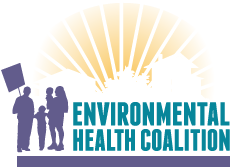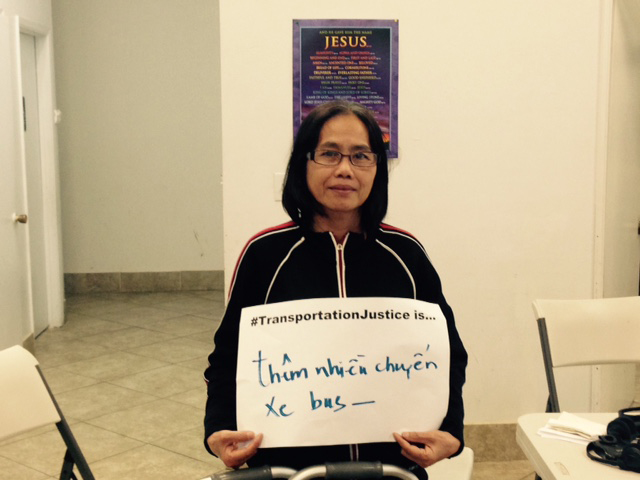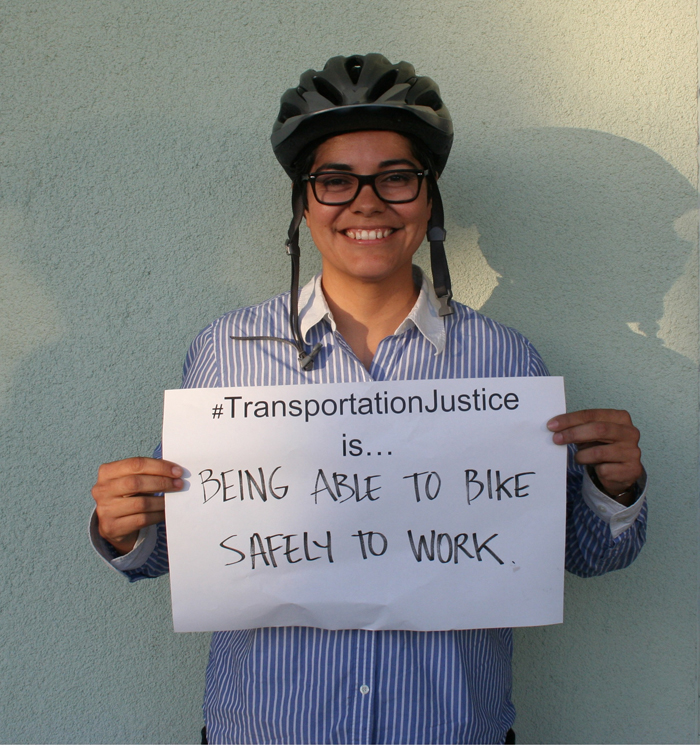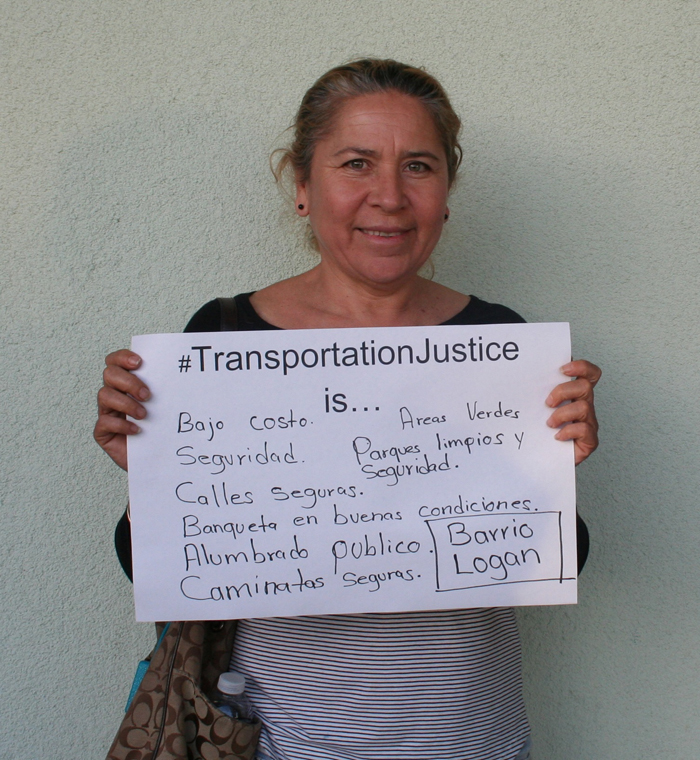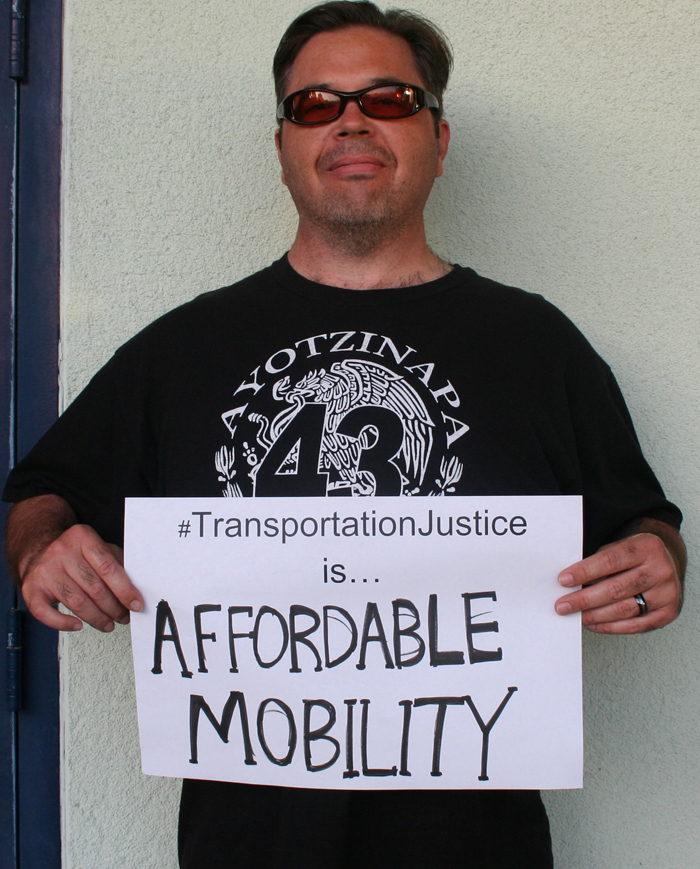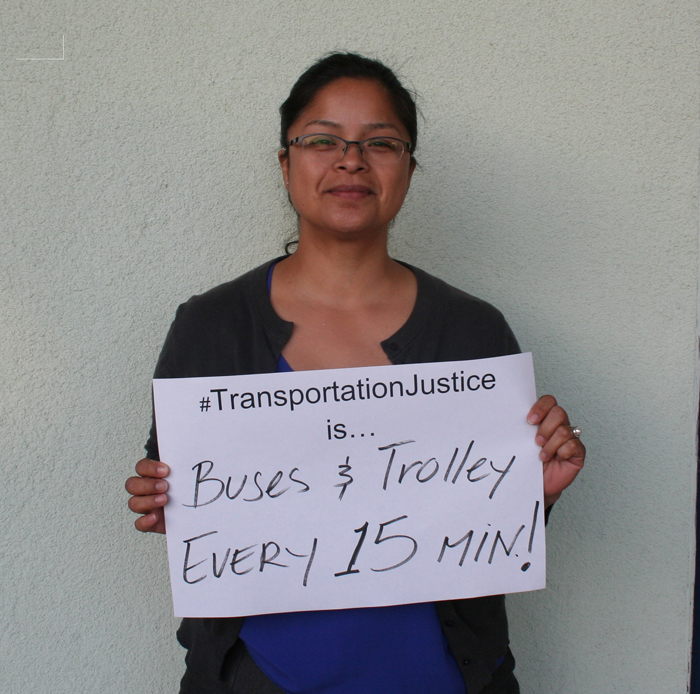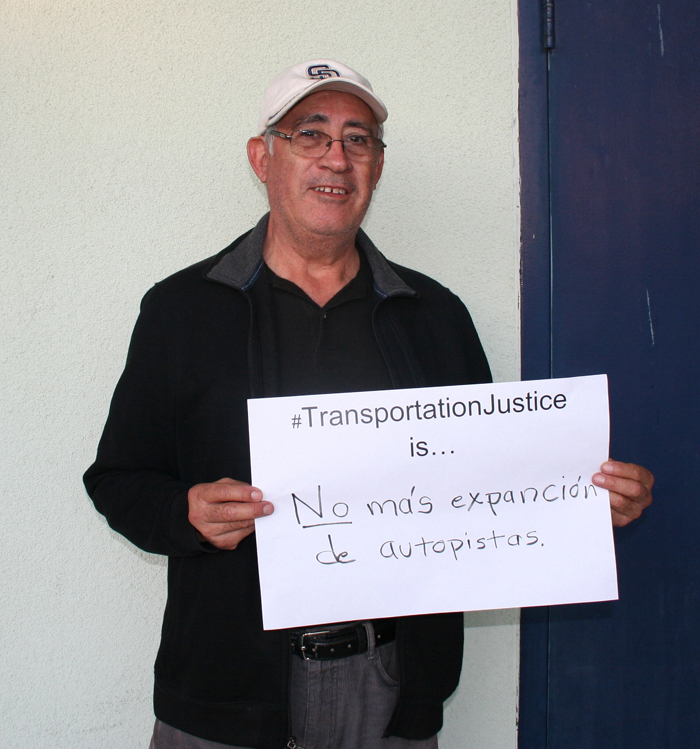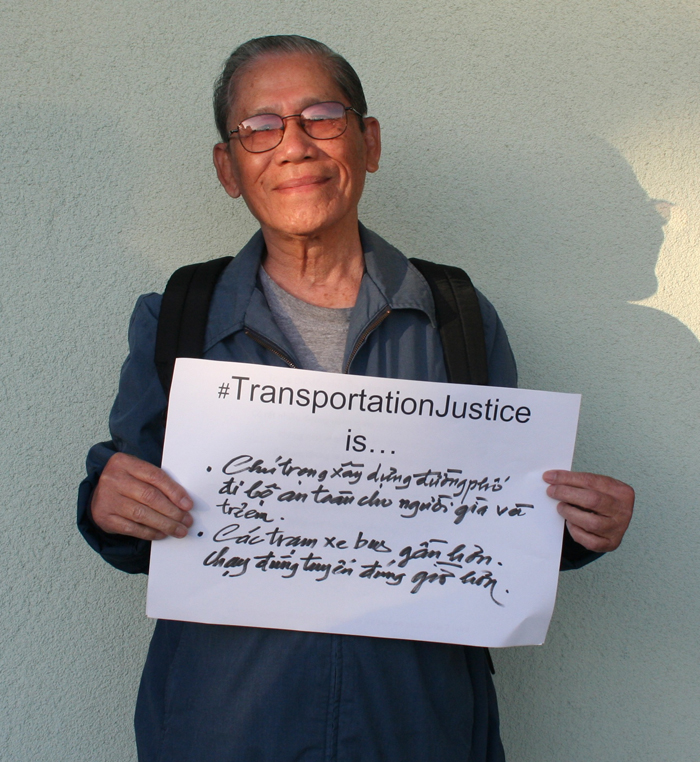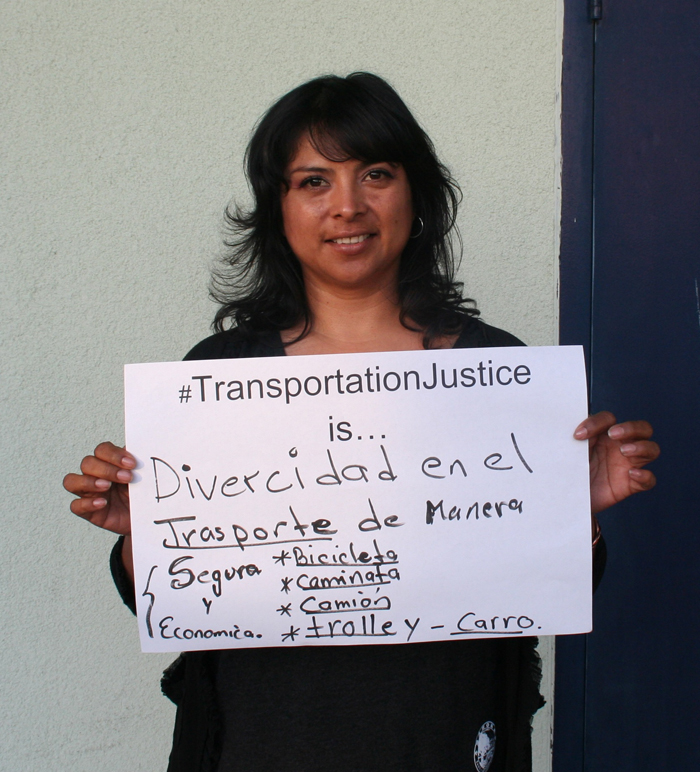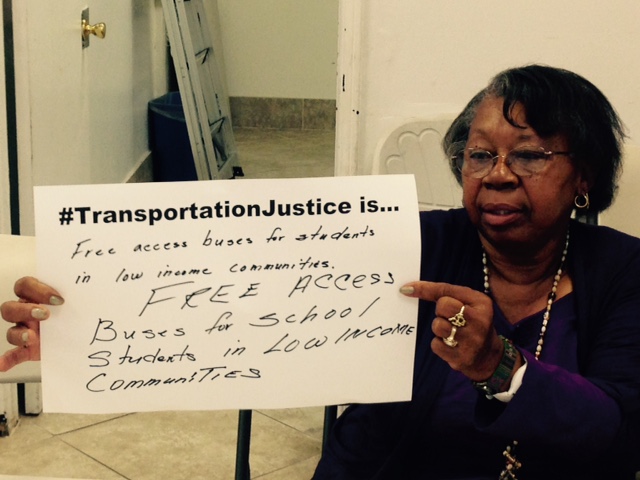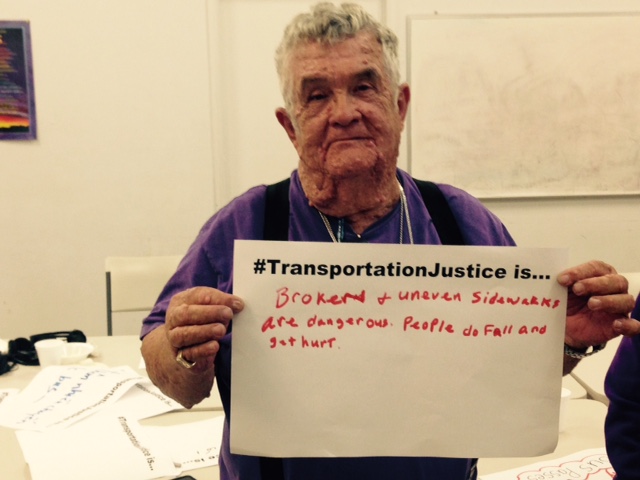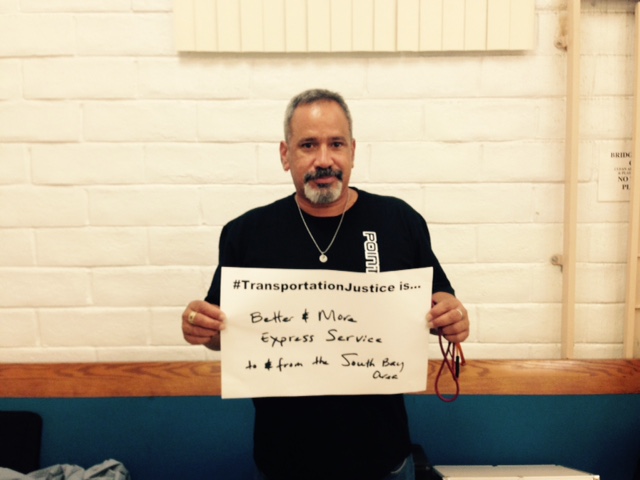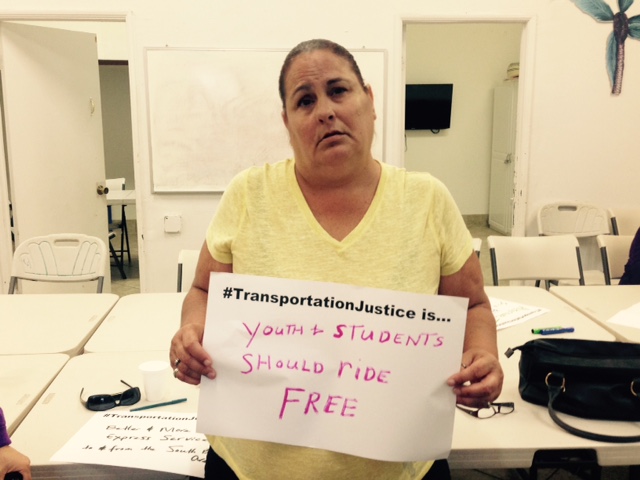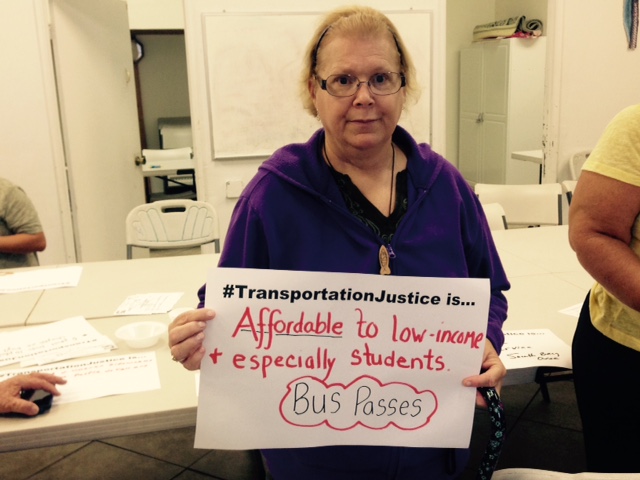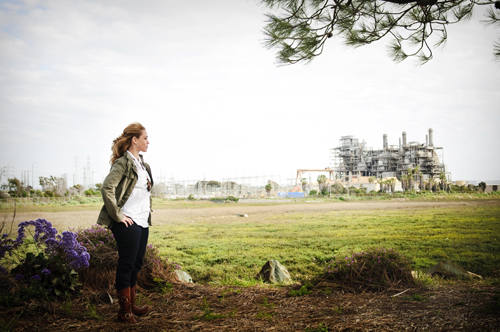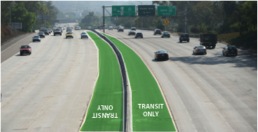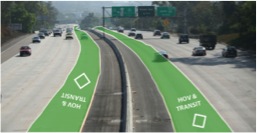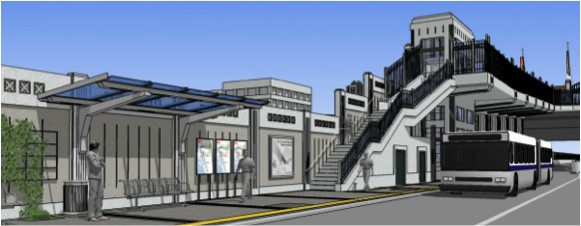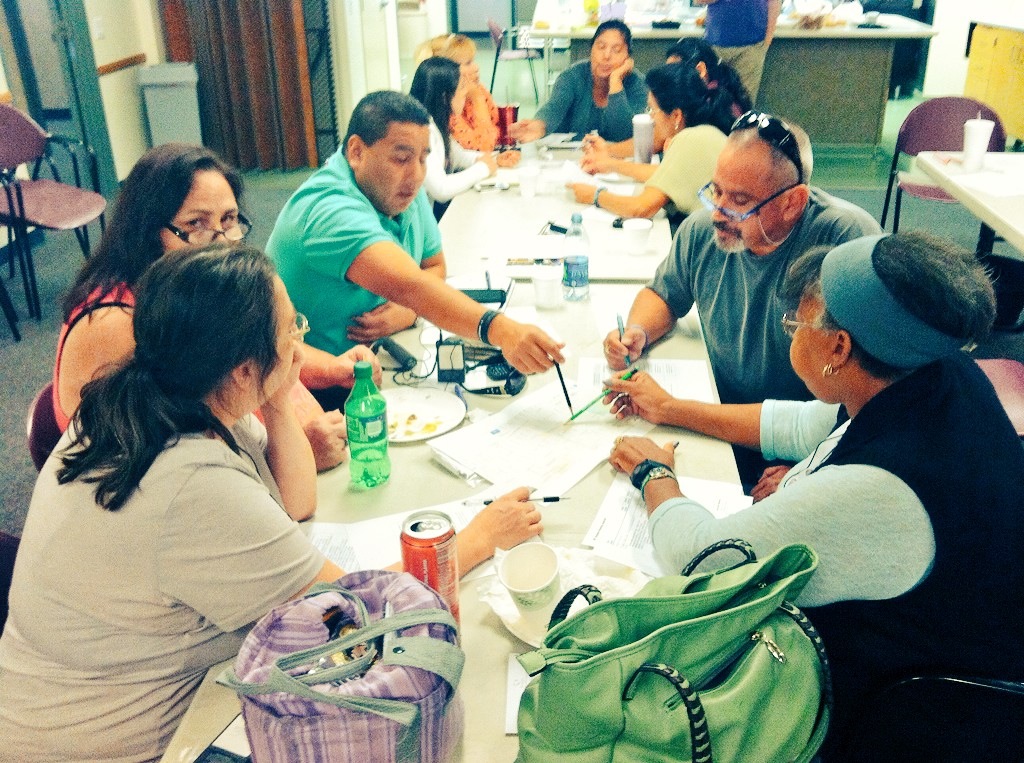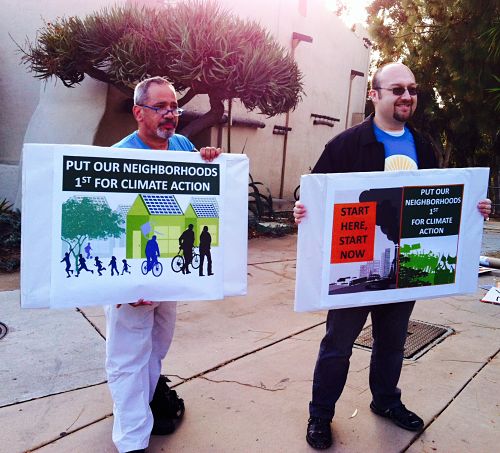A revolutionary move for transportation justice is right around the corner.
For the past several months, the community has been asking for more bicycling and walking options and public transit accesss. In close partnership with City Heighs Community Development Corporation, we've asked for alternatives that don't grow freeways, but give us healthier transportation options and improved mobility.
Today, the San Diego Association of Governments (SANDAG) heard our voices. Instead of only moving forward with freeway-focused planning that jeopardizes the health of our neighborhoods, it recommended the incorporation of $31 million for a test project that would allow public transit to run on the shoulder/in the median along SR-94 and parts of the 805 freeway during high-traffic times.
To make public transit more accesible, SANDAG is also looking into putting a bus stop in the Sherman Heights/Golden Hill neighborhoods.
With a strong and unified voice, today the community's recommendations for a healthy transportation future have become valid and potential options as SANDAG has agreed to include them in the review process.

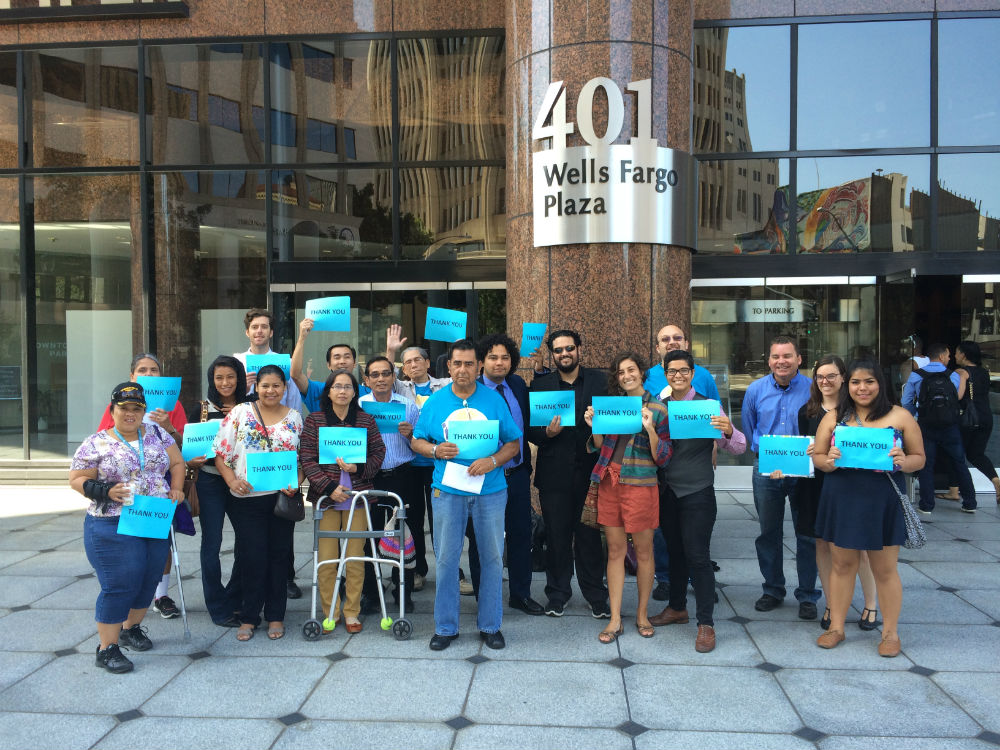
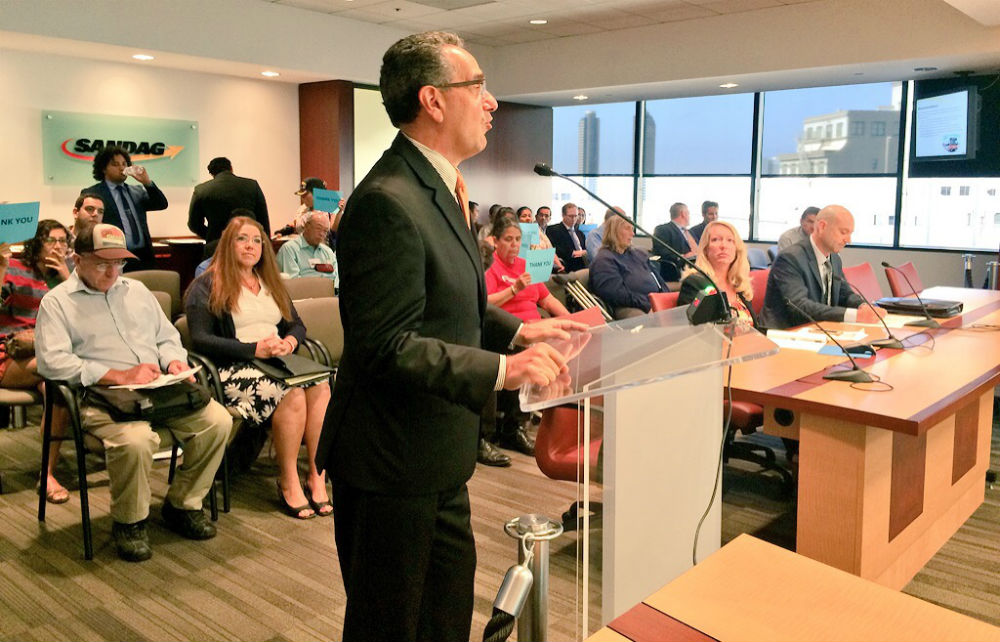
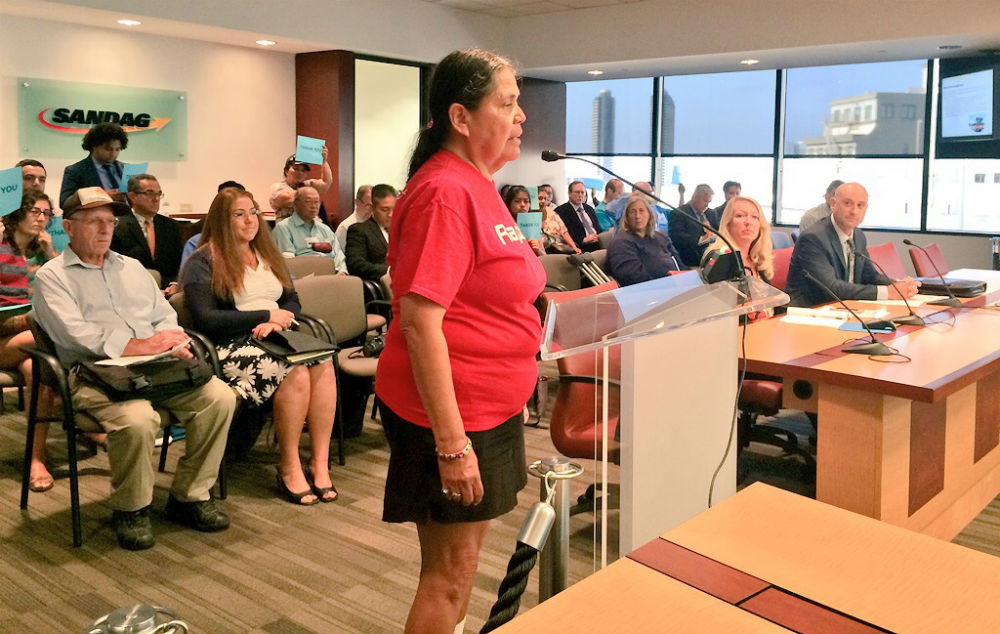
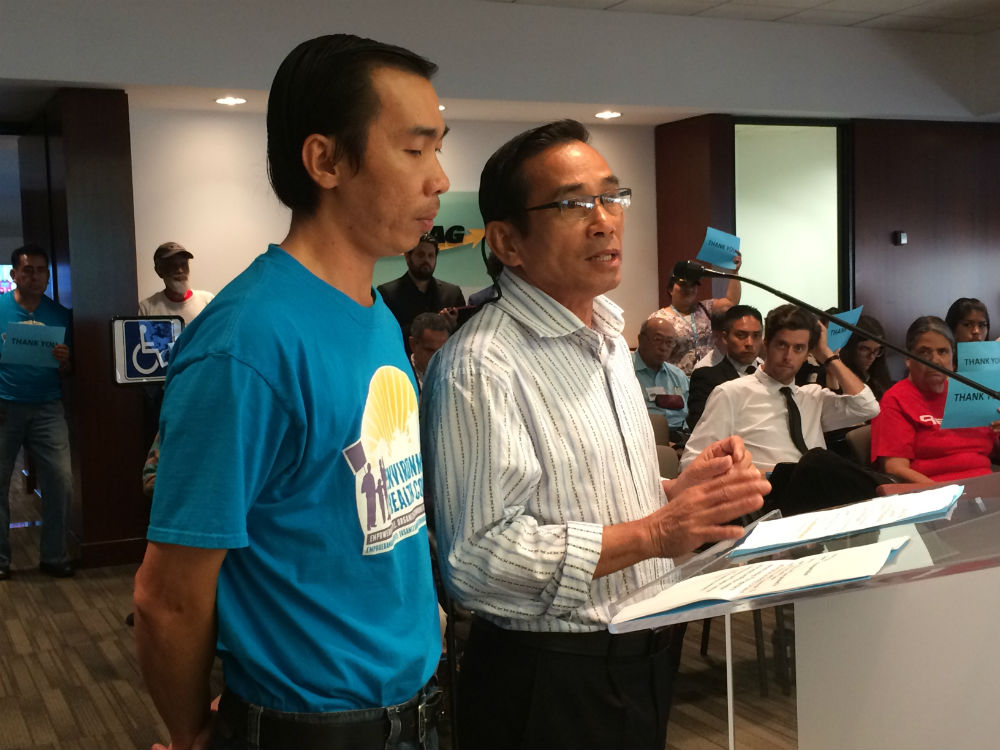
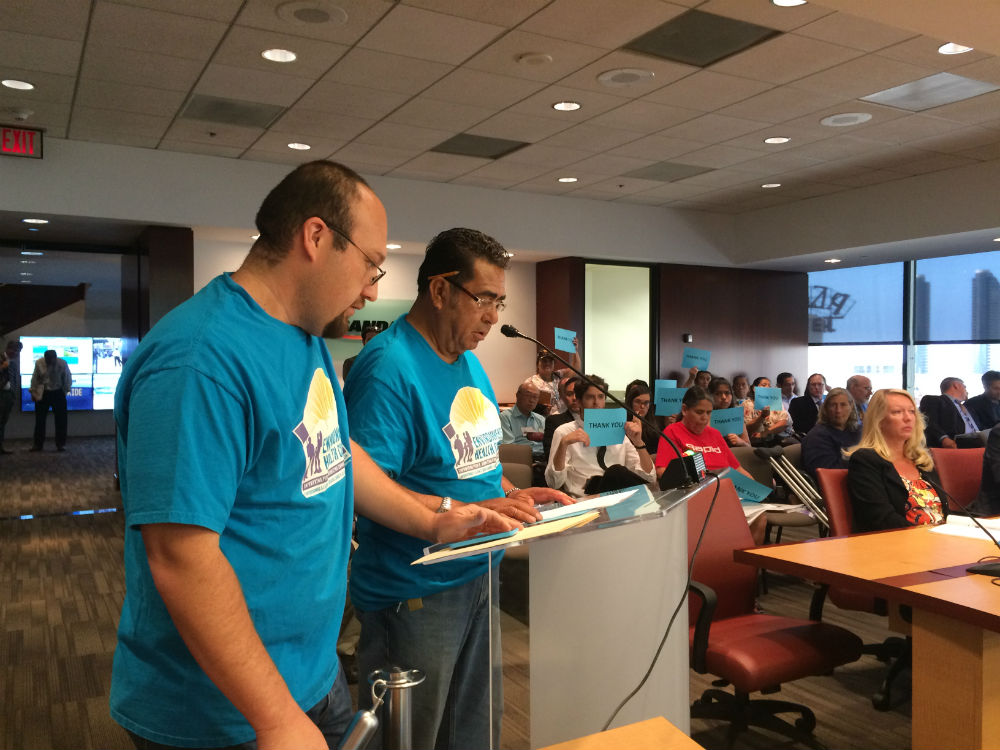
Policy advocate Monique Lopez says, "This starts the conversation in the region of how we do transportation planning. There's other ways that are more innovative and the community can stand behind than expanding freeways."
Working closely with City Heights Community Development Corporation, The MAAC Project and many community residents who live along the corridor, we would like to thank our elected officials who showed leadership in supporting innovative community-supported approach to improving mobility on the Martin Luther King, Jr. freeway corridor. Thank you Councilmember Alvarez, Councilmember Gloria, Councilmember Emerald, Councilmember Cole, Assemblymember Gonzalez and Assemblymember Weber. Additionally, we would like to thank SANDAG and Caltrans staff for their work on the project, for the continued open lines of communication and for being responsive to the community concerns and requests.
On Friday, July 24, SANDAG makes its final decision about transportation justice improvements in our communities. Until then, thank you for having a voice for a future of #healthyhoods and #familiesbeforefreeways. Follow us on Twitter and stay tuned.
